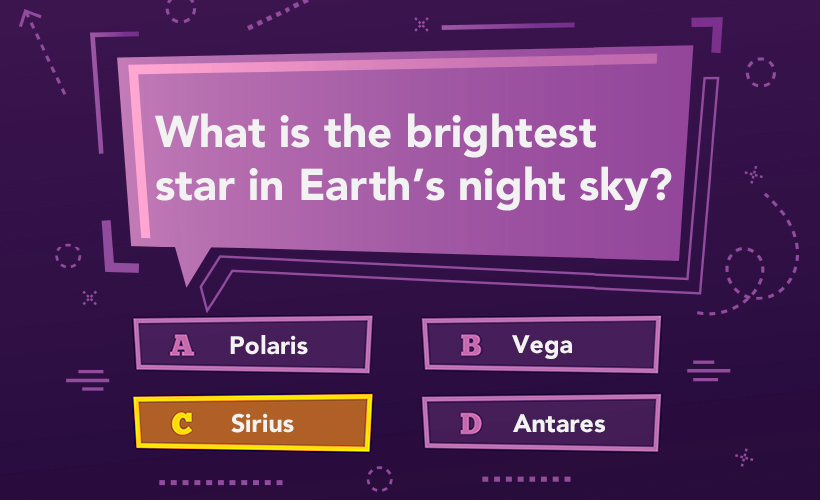MORE THAN FIVE CENTURIES OF THE AMERICAN EXPERIENCE
 K-12 Schools & Districts
K-12 Schools & Districts Public Libraries
Public Libraries Universities & Colleges
Universities & CollegesAmerican History is a comprehensive resource that spans our nation’s history, with a user-friendly interface and award-winning content. The home page offers many ways to begin exploring the material, from the videos, slideshow overviews, and Topic Centers to the lists of key content handpicked by our editors to help users find a starting point for their research. By providing the most comprehensive range of information in one complete resource—subject entries, biographies, primary sources, videos and slideshows, images, timelines, and maps and graphs, plus full cross-searchability across all the Infobase history databases—American History offers a virtual library of American history for educators, students, and researchers.
Take a FREE TRIAL of American History today!
Topic Centers include:

What day does the Spring Equinox land on? How long did the U.S. Civil War last? What was the name of the first woman in space? Trivia games aren’t just fun—they are also exercise for the brain, great for improving memory as well as problem-solving and critical-thinking skills. If you’re looking for a fun way to quiz your students while teaching them research skills, try asking them trivia questions and then let them search Infobase’s databases for the answers. To increase the challenge, offer bonus points for speed or establish a “no searching” rule to encourage them to find the correct answers by browsing. Here are some ideas on what questions you can ask. Questions for Elementary and Intermediate Students The World Almanac® for Kids Elementary and The World Almanac® for Kids cover a wide range of curricular topics for middle school and elementary students. Each database features a special trivia question on the homepage as well as Fun Facts articles and games including word searches and crossword puzzles. The World Almanac for Kids also features an interactive, SMART Board-friendly Trivia Challenge that can be used in class to enrich lessons across the curriculum or as an engaging introduction to […]
Read More
Every January, we honor the life and triumphs of civil rights leader and nonviolent activist Martin Luther King Jr. Infobase’s streaming video platforms—the award-winning Learn360 for K–12 schools and districts, Classroom Video On Demand for secondary schools, Films On Demand for colleges and universities, and Access Video On Demand and Just for Kids for public libraries—feature videos your institution can use on Martin Luther King Jr. Day to introduce students and patrons of all ages to his accomplishments and maybe even inspire them to become the next great activists. Here are just a few of the videos you’ll find. We have included searchable item numbers for your convenience. (Not all titles are available on all platforms or in all countries. Some of these titles contain mature themes or content; viewer discretion is advised.) Videos for Grades PreK–5: Martin Luther King Jr. (DK Timelines) (Item #290921; Grades 3–5) Holiday Kids: Martin Luther King Jr. Day (Item #289515; Grades PreK–5) Martin Luther King Jr. (Item #204752, Grades 3–5) From the I Wonder: Famous People series (Grades PreK–5): Who Was Martin Luther King? (Item #290299) Did Martin Luther King Get the Nobel Peace Prize? (Item #290281) What Did Martin Luther King Do? (Item […]
Read More
When Donald Trump returns to the White House on January 20, 2025, he will have the dubious distinction of becoming the first person convicted of a federal crime to hold the office of the presidency. As presidents have the power to pardon people convicted of federal crimes, Trump’s reelection raises the question of whether or not presidents can pardon themselves. Issues & Controversies’ article highlighting the debate on this topic has just been revised for Trump’s upcoming second term. Does the president have the power to self-pardon? Here is a sample of the arguments on both sides of the issue you’ll find in this Issues & Controversies’ article. A Featured Controversial Topic from Issues & Controversies: Presidential Pardons: Does the President Have the Power to Self-Pardon? SUPPORTERS OF PRESIDENTIAL SELF-PARDONING ARGUE OPPONENTS OF PRESIDENTIAL SELF-PARDONING ARGUE The U.S. Constitution grants the president nearly absolute pardoning power. If the framers of the U.S. Constitution had wished to prohibit self-pardoning, they would have done so explicitly. If presidents commit crimes, it is Congress’s job to remove them from office through impeachment. The U.S. Constitution does not grant presidents the power to pardon themselves. A self-pardon would be just the kind of abuse […]
Read More